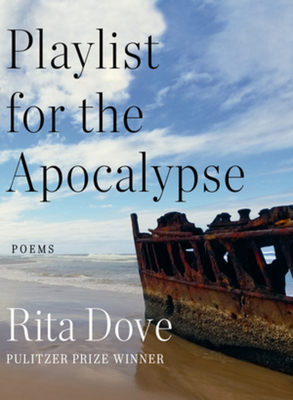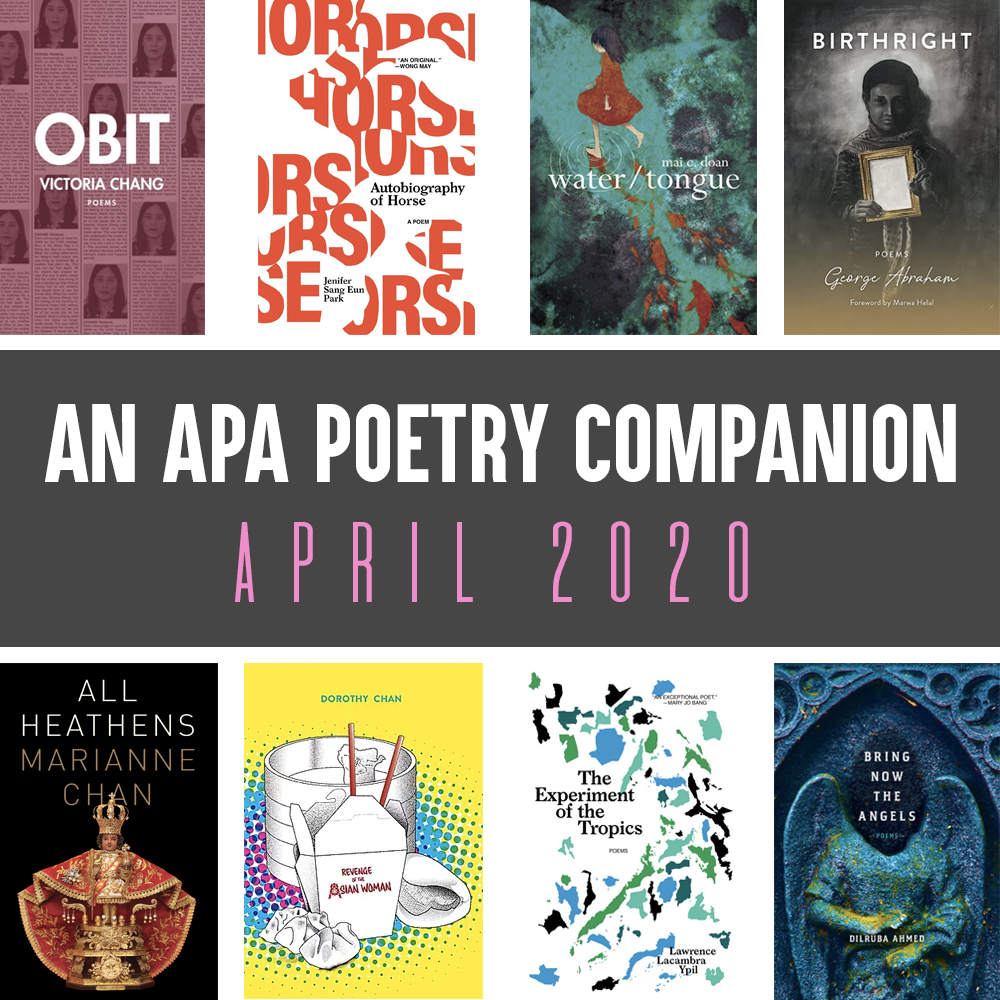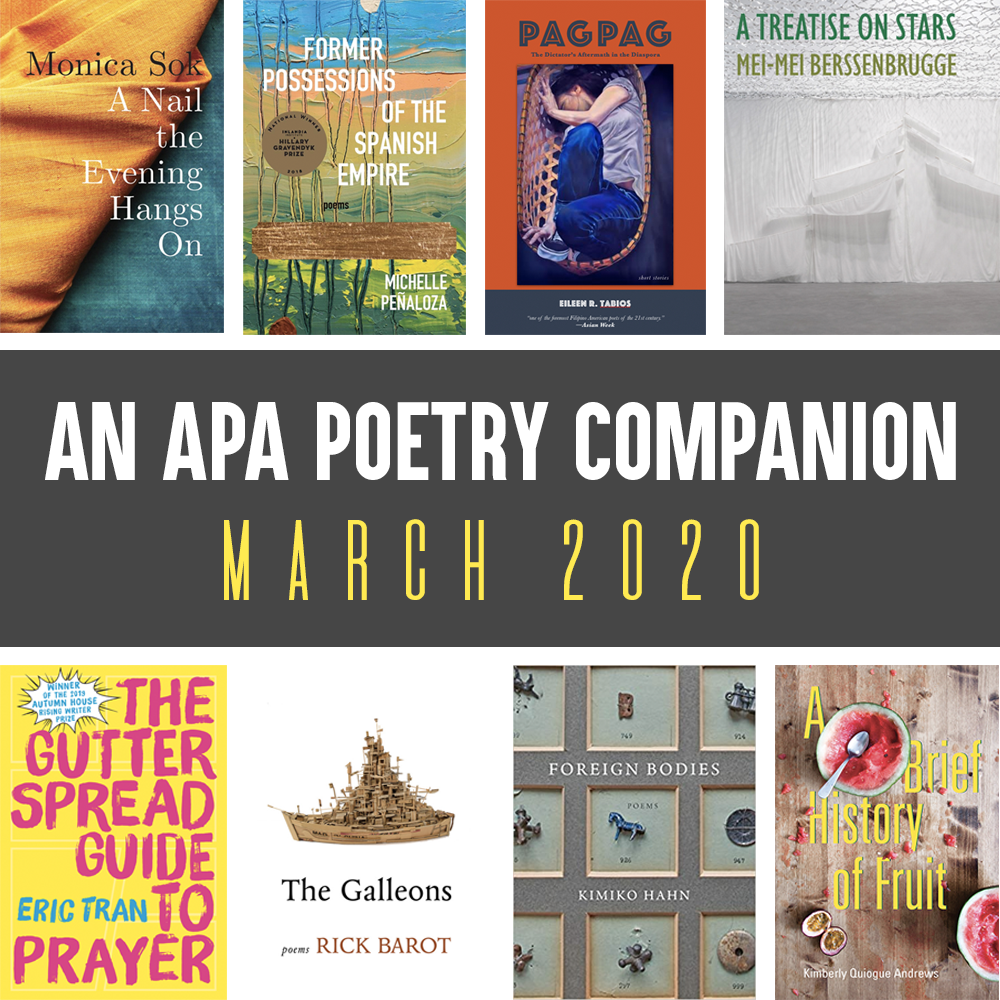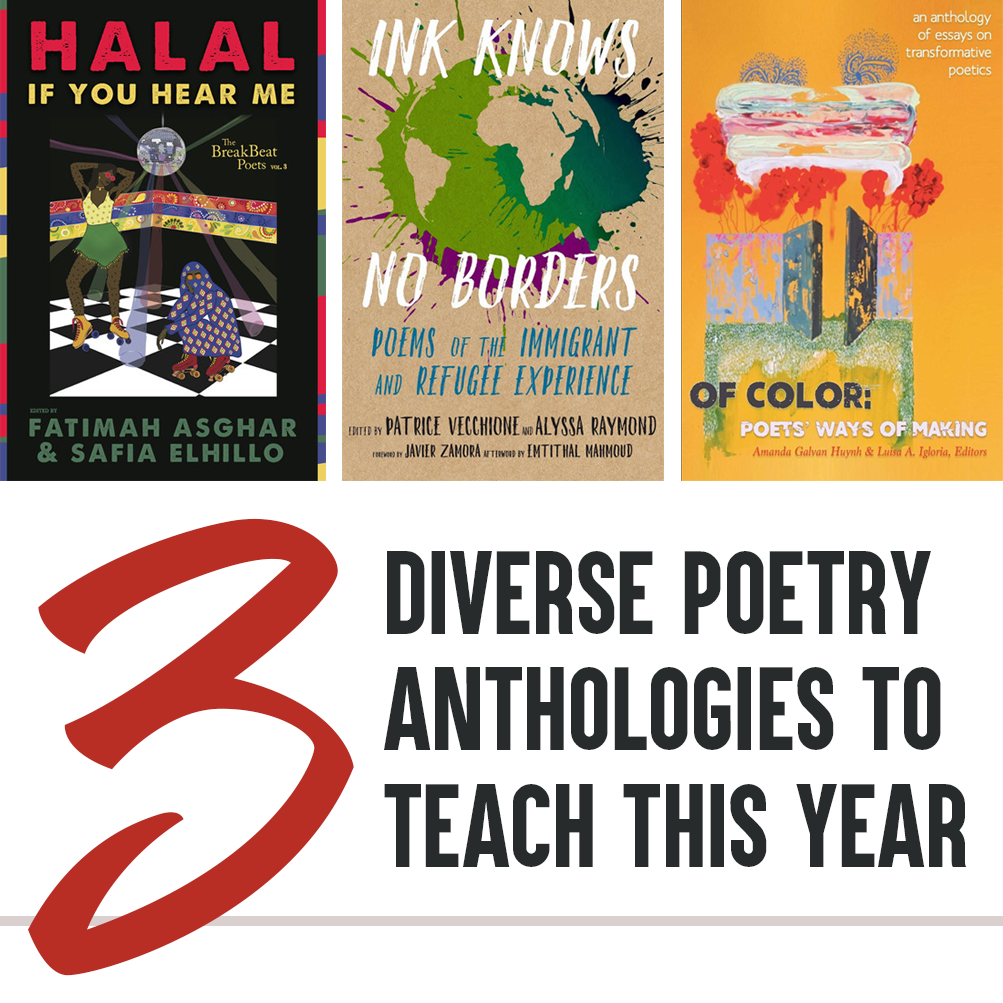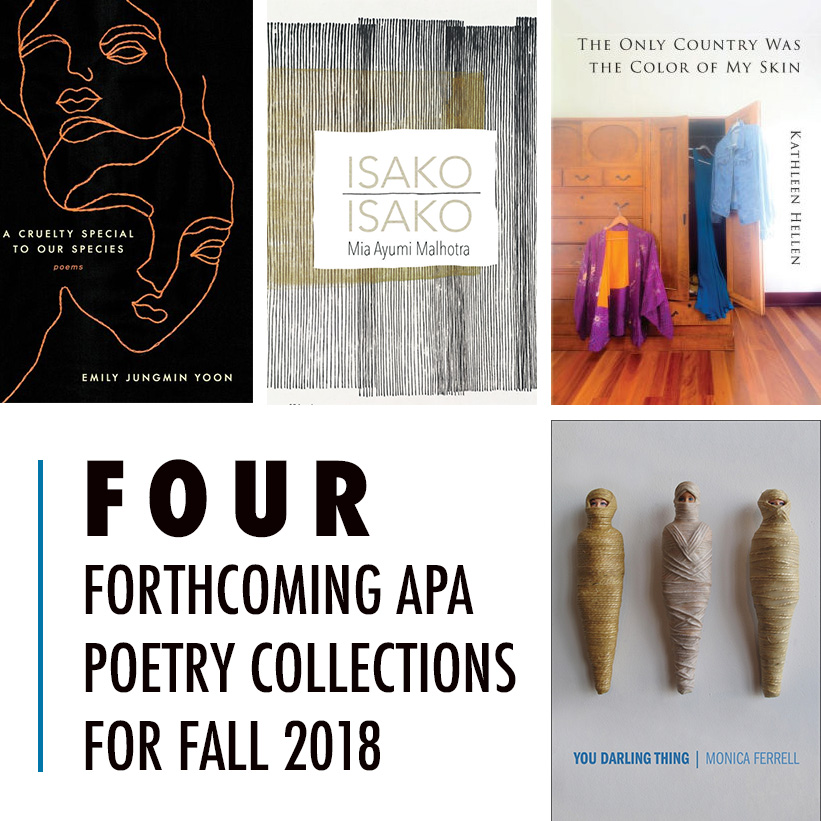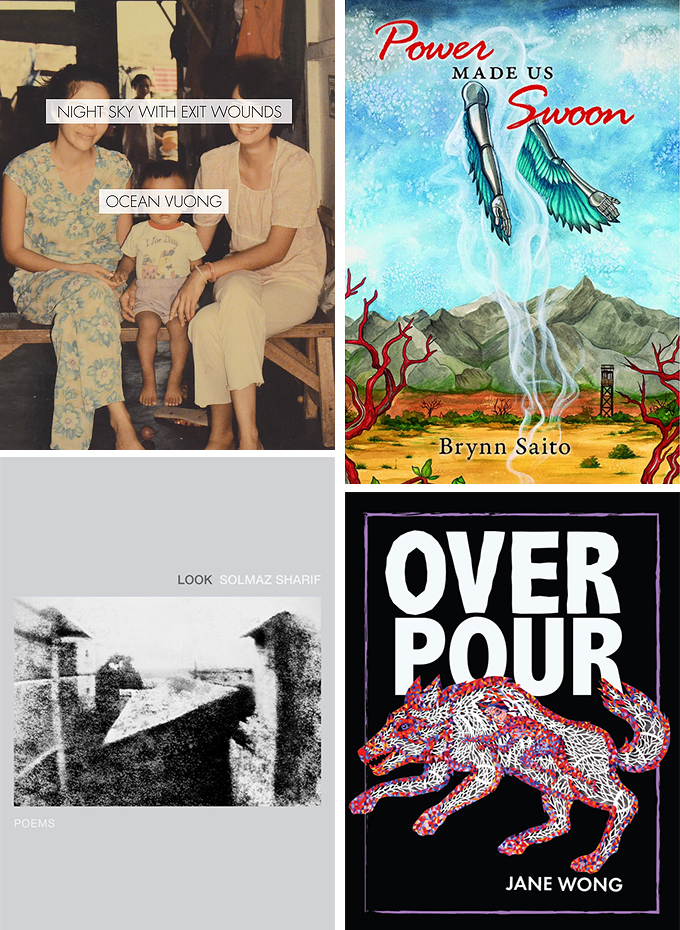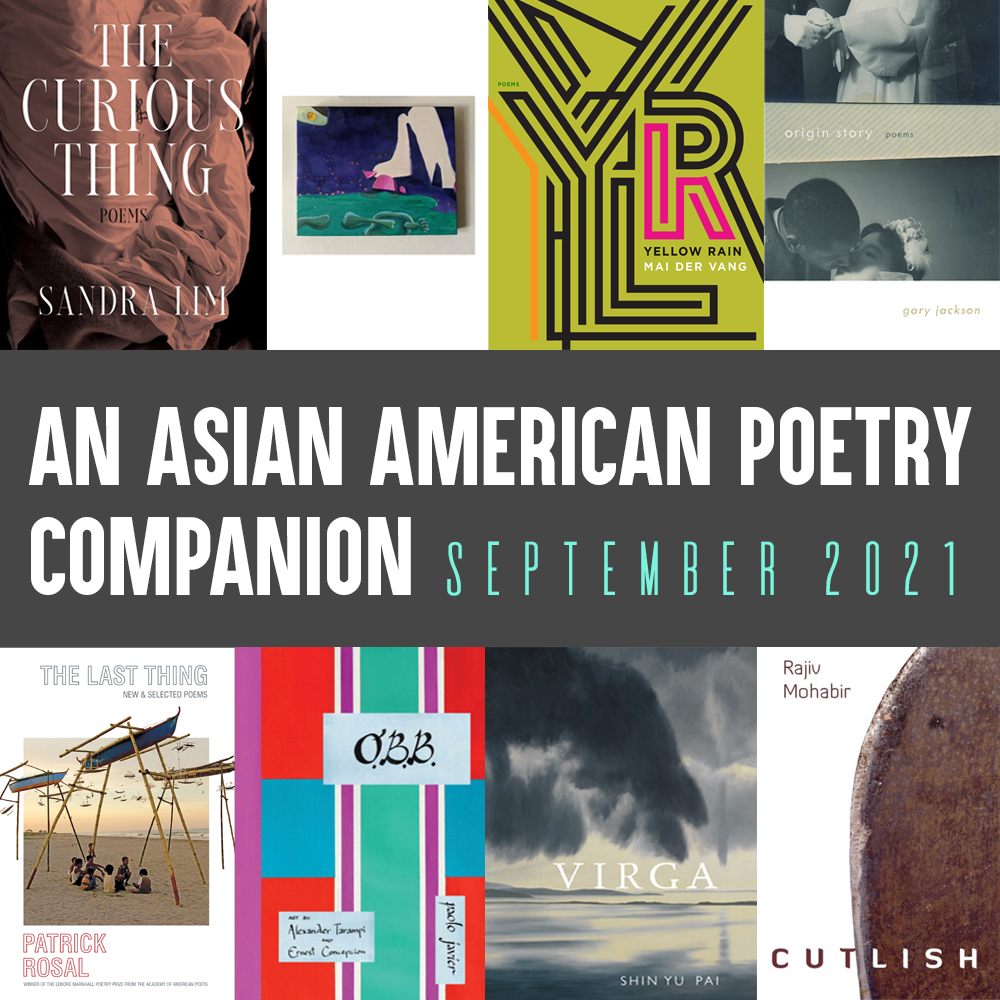
Even we find ourselves at the close of another challenging summer, Asian American voices continue to shine in print. Earlier this year, we celebrated the proliferation of spring Asian American poetry releases. Today, we’re excited to highlight just a small portion of the new and forthcoming works coming out of the AsAm poetry community this fall.
* * *
FEATURED PICKS:
Gary Jackson, origin story (U of New Mexico Press, August 2021)
Gary Jackson’s second collection delves deep into family history, hopping back and forth across time and geography to tell the stories of Jackson’s Korean maternal grandmother, Dukie, and his mother, Kimberly. Sprinkling personal vignettes with missives in Dukie’s voice and erasures created from interviews with Kimberly, Jackson meditates on what it means to navigate among identities—Blackness and Asianness, Americanness and Koreanness—across continents, and through intersecting diasporas in search of belonging. We thoroughly enjoyed this powerful new collection and hope you’ll check it out as well.
Monica Mody, Ordinary Annals (above/ground, August 2021)
Contributor (and past staff writer) Monica Mody’s newest chapbook, written over the course of the last year, reflects on the tumultuous events of 2020 and 2021 as the poet herself contended with the US’s notoriously thorny visa system. In her signature resonant and deeply grounded poetic style, Mody examines the limits of the body in all its many senses—as creative work, as organism, as site of protest, as political subject, as resident (of community, of nation, of habitat, of ecosystem, of Earth)—resulting in a prescient work that, in the poet’s own words, “falter(s) towards a ripple, a ground of healing.” A beautiful artifact of these difficult times, this lovely little handmade chap is not one to miss.
Rajiv Mohabir, Cutlish (Four Way, September 2021)
It’s no secret that we’re big fans of Rajiv Mohabir’s lush, melodic poetry. (We’ve published him three times, after all!) Cutlish is his third full-length collection, out this month from Four Way Books. Built around a semi-invented, musically inspired form that Mohabir calls a “chutney poem” after the work of Sundar Popo (considered the father of Caribbean Chutney music), Cutlish sets out to investigate the interstices of language and diaspora, postcolonial and queer identities. Patrick Rosal writes that, in its pages, “Mohabir leads us enthusiastically to the edges of language—torn, improvised, as well as deftly carved—where music and meaning are visually and sonically sumptuous.” If you’ve enjoyed the pieces of Mohabir’s that we’ve published in the past, you’ll definitely want to pick up a copy of this book.
Mai Der Vang, Yellow Rain (Graywolf, September 2021)
We were lucky enough to publish Mai Der Vang’s work back in Issue 3, and we were incredibly excited to hear about her second book’s entry into the world this fall. Vang’s first collection, Afterland, won the Walt Whitman Award, and she’s now followed it up with Yellow Rain, which bears witness to the harm inflicted upon the Hmong people in Laos in the 70s and 80s by the chemical known as “yellow rain.” Using collaged language drawn from historical documents, Vang’s newest book promises to be just as searingly powerful as her first. Booklist has awarded it a starred review, and Kao Kalia Yang describes it as a “an indictment of the highest and most poetic order.” We can’t wait to dig into this one when it’s released later this month!
* * *
MORE NEW & NOTEWORTHY TITLES:
Paolo Javier, O.B.B. (Nightboat, September 2021)
Sandra Lim, The Curious Thing (Norton, September 2021)
Shin Yu Pai, Virga (Empty Bowl, August 2021)
Patrick Rosal, The Last Thing: New & Selected Poems (Persea, September 2021)
* * *
What new Asian American poetry titles are on your radar this season? We’d love to hear from you! Share your recommendations with us in the comments or on Twitter, Facebook, or Instagram (@LanternReview).
ALSO RECOMMENDED:
Playlist for the Apocalypse by Rita Dove
(Norton, 2021)
Please consider supporting a small press or independent bookstore with your purchase.
As an Asian American–focused publication, Lantern Review stands for diversity within the literary world. In solidarity with other communities of color and in an effort to connect our readers with a wider range of voices, we recommend a different collection by a non-Asian-American-identified BIPOC poet in each blog post.
